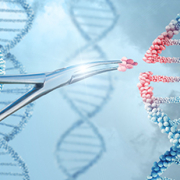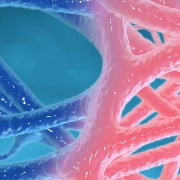10 things to consider when offering a genomic test
Guest author Professor Frances Flinter explains 10 of the most important considerations for professionals and patients
Genetic and genomic tests can be very useful to make a diagnosis and identify whether a condition has been inherited. Increasingly, these tests are offered not only by clinical geneticists and genetic counsellors, but also by a wide range of healthcare professionals.
It’s important that both healthcare professionals and patients understand the implications and realities of genomic testing, which must be discussed with individuals considering tests before they give consent. Here, clinical geneticist Frances Flinter outlines 10 things to be aware of:
1. The reasons for a genomic test
A genomic test may be appropriate if an individual:
- could have a health condition caused by a change in one or more genes;
- has a relative with a genetic diagnosis;
- has close relatives with a particular type of cancer that could be inherited; or
- has a partner carrying a genetic variant for a health condition that could be passed on to their children.
2. What a genomic test can reveal
A genomic test can:
- diagnose a rare genetic health condition;
- reveal whether an inherited health condition may affect the individual, their children or other family members, and help them to consider their reproductive options;
- show if the patient is at higher risk of developing certain health conditions, including some types of cancer, which may warrant additional screening or treatment;
- help doctors decide which medicine or treatment to offer; and
- guide clinicians regarding an individual’s eligibility for clinical trials.
3. Wider implications for the family
The results of a genomic test may have implications both for the person being tested and for members of their family. For example, if a significant gene variant is found, other family members may be at risk of being affected by, or may be carriers of, a particular condition. Individuals undergoing testing therefore need to understand that their results may have implications for their relatives.
Particular care needs to be taken with the timing of tests if the individual, or a close relative, is already pregnant. These discussions can be difficult, even in families that normally communicate in an open fashion, and they may be very challenging in families that do not have good relationships.
4. Potential uncertainty in results
Test results may include findings that are uncertain and not yet fully understood. To decide whether findings are significant for the individual, data may be compared with other patients’ results across the country and internationally. The interpretation of results can take a long time and could change in the future as new knowledge emerges. The shifting nature of genomics and the constant development of our understanding of test results should be made clear.
It is important to remember that a normal test result does not necessarily exclude genetic disease, unless the precise underlying cause of a particular condition in other members of the family is known, and has been tested for, with a normal result.
5. Unexpected information
The results of a genomic test may reveal unexpected information that is not related to the original clinical question. If such findings are made, investigations may be required to understand their significance.
If other members of the family are tested as well, the results may reveal that relationships are not as expected, for example non-paternity may be exposed.
6. How DNA is stored
Normal NHS laboratory practice is to store any remaining DNA extracted from a sample after testing is complete. DNA might be used for future genomic tests, or as a control sample when testing family members. Stored DNA samples can also be used by the laboratory for test development and quality control procedures, although they are de-identified and no results are generated when this happens.
7. How data is stored
The data from genomic tests is stored securely so that it can be looked at again in the future, if necessary. This may also include data about the health or family history of the person being tested, which is provided with the reason for testing.
8. Integration with health records
Results from genomic tests form part of patients‘ records, a copy of which is held in a national system only available to healthcare professionals. This information can be helpful to guide appropriate management of the patient, or when family members request genetic testing.
9. Research opportunities
Individuals may have the opportunity to take part in research, which may benefit them or others, now or in the future. There may be specific research related to a patient’s condition, or broader genomic research. Patients who will be offered whole genome sequencing in the NHS Genomic Medicine Service in the future will have an opportunity to take part in a national research opportunity called the National Genomic Research Library.
10. Access to support for healthcare professionals
Support and advice is always available to discuss the choice of genomic test, the interpretation of results, implications for family members, or any particular issues that may be relevant in specific situations. Healthcare professionals can contact their regional Genomic Laboratory Hub, or discuss with relevant clinical colleagues including their Regional Clinical Genetics Service (RGCs). Staff in the RGCs will be happy to help by telephone, or following referral to see families for further discussions. Genetic counsellors are also available to arrange ‘cascade testing‘ of other family members who may carry the same genomic alteration, if one has been found.
Frances Flinter is an emeritus professor of clinical genetics, based at Guy’s & St Thomas’ NHS Foundation Trust.
—
The Genomics Education Programme is developing a number of resources to support healthcare professionals that will be involved in requesting and consenting patients for genomic tests. For more information, you may wish to review our competency framework for facilitating genomic testing, or our resources about requesting whole genome sequencing in the NHS Genomic Medicine Service.
For more information on the value of a genetic diagnosis to patients, and the challenges clinicians can face in interpretation and analysis of results, our Clinical Genetics in Action series is available to view on Vimeo.
–









